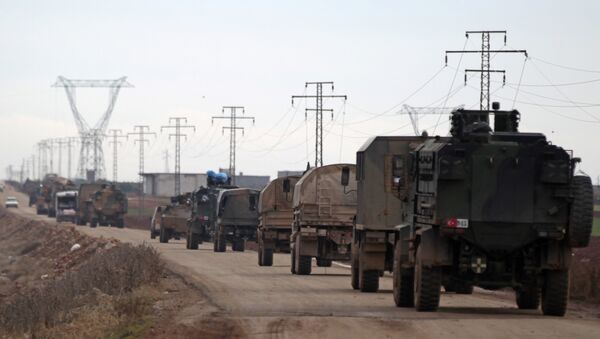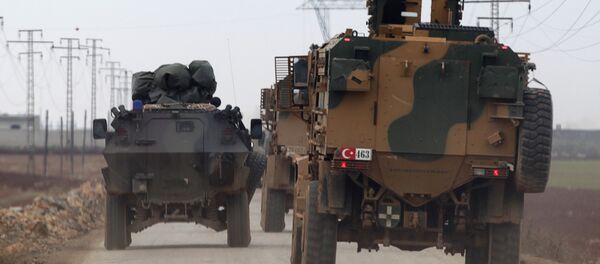Ismail Hakki Pekin, former chief of the Turkish General Staff Intelligence Department, told Sputnik Turkiye that this decision was made due to a number of factors: namely, the unwillingness of the Turkish military to clash with the Syrian armed forces advancing on al-Bab from the south, the peace talks in Astana, and US President Trump’s call to establish safe zones on Syrian territory.
According to Pekin, the liberation of al-Bab and the subsequent withdrawal of the Turkish armed forces from the area may be accomplished within a month. He pointed out however that Turkey will likely maintain a small military presence in al-Bab region to ensure the safety of civilian personnel that Ankara will send there.
"When the al-Bab operation is brought to a close, some Turkish military units will have to remain there because otherwise all gains made during the offensive may be lost. Meanwhile, Syrian army forces are advancing towards al-Bab from the south, and Turkey obviously wants to avoid clashes with Syria. In theory, this situation may prompt Syria and Turkey to engage in direct talks, though a lot depends on whether these two forces will be able to coordinate their actions in al-Bab. At the very least, the Turkish military definitely does not want a direct conflict Syria," Pekin said.
He pointed out that Turkey's stance regarding the Syrian leadership has drastically changed during the last few months as Ankara no longer considers the resignation of Syrian President Bashar Assad as a mandatory condition for peace talks.
Also, as the trilateral ceasefire control mechanism that was agreed upon during the Astana talks is expected to come into effect soon, Russia, Turkey and Iran will create a group of specialists to oversee the ceasefire implementation. This measure will likely require the involved parties to deploy special forces units in the region, which may also have been one of the factors influencing Ankara’s desire to swiftly complete the al-Bab operation.
Furthermore, any prolongation of the military operation in al-Bab may have a detrimental effect on the combat readiness of Turkish troops, according to Pekin.
"Once the operation is over, the troops must withdraw from the region so that Russia and the US may decide on further ground operations. And if we interpret the president’s (Erdogan’s) words about the end of the al-Bab operation as a signal that Turkish forces won’t advance on Manbij, it may mean that Ankara is preparing to cooperate with the US in that region," Pekin said.



